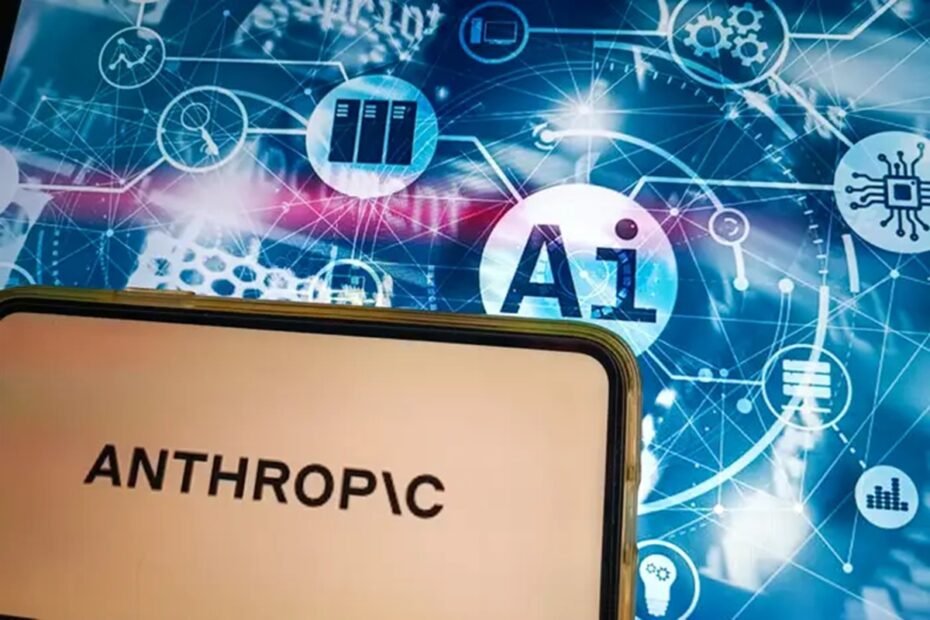A $1.5 billion settlement with Anthropic’s $1.5, the company behind the AI tool Claude, has been called the biggest payout in U.S. copyright history. On paper, it looks like a huge win for writers: nearly half a million authors will be eligible for at least $3,000 each. But dig a little deeper, and many say this isn’t a triumph for the creative community at all. Instead, it feels like another chapter in the ongoing story of tech giants using creative work without real accountability.
The lawsuit, Bartz v. Anthropic’s $1.5, centered on the company’s decision to download millions of books from so-called “shadow libraries” to feed its AI models. The problem wasn’t that the works were used to train artificial intelligence — a federal judge already decided in June that AI training counts as “fair use.” The real issue was how Anthropic got the books: by pirating them instead of paying. With this settlement, the company avoids a messy trial, pays out billions it can afford, and goes back to business as usual.
Why Writers Feel Shortchanged
For writers, the payouts feel bittersweet. Sure, $3,000 is better than nothing. But compared to the billions in funding these AI companies raise — Anthropic’s $1.5 recently secured $13 billion — the settlement feels like loose change. Authors see years of hard work being reduced to a single check that doesn’t change the bigger issue: their books, ideas, and creativity are being consumed by machines that now compete with them.
This frustration comes down to fairness. While Judge William Alsup ruled that training AI on copyrighted material counts as transformative use, writers argue that the law hasn’t kept pace with technology. U.S. copyright law hasn’t been updated since 1976, long before anyone imagined a computer “reading” millions of books to generate new text. That leaves authors stuck in the uncomfortable position of watching their work fuel the very tools that threaten their livelihoods.
The Bigger Battle
Anthropic’s $1.5 isn’t the only company facing questions. Meta, Google, OpenAI, and image-focused firms like Midjourney and Stability AI are all in court for similar reasons: training their systems on copyrighted works without clear permission. Each case adds pressure on judges to decide where the line should be drawn between innovation and theft.
For example, in music, artists have already spoken out about AI-generated songs that mimic their voices. In visual art, lawsuits have been filed over AI models trained on copyrighted images. Writers now find themselves in the same fight, but with far more at stake. Books, after all, are the foundation of knowledge for these AI systems.

What Happens Next?
While this settlement closes one chapter, the story is far from finished. If other judges follow Alsup’s reasoning, companies may feel emboldened to keep scraping and training without paying creators fairly. On the other hand, if another court takes a stricter view, we could see a landmark shift that forces AI firms to license materials properly.
There’s also the question of legislation. Many experts argue it’s time to update copyright law for the digital and AI age. Without changes, tech firms may continue treating these lawsuits as the “cost of doing business,” paying billions in settlements while earning far more from their AI products. For writers, that means the risk of being left behind only grows.
Looking Back, Looking Ahead
This case is part of a much larger pattern:
- Writers have already filed multiple suits against companies like OpenAI and Meta for the same issues.
- Musicians and visual artists are raising alarms about AI’s ability to replicate their work.
- Courts are being forced to make decisions on technology that advances far faster than the laws designed to regulate it.
The Anthropic settlement may set a record, but for many, it doesn’t feel like justice. Instead, it serves as a warning sign of how creative industries are struggling to keep up with technology that never slows down.
The real question now is whether lawmakers, judges, and the creative community can come together to redefine ownership and fairness in this new era — or whether billion-dollar companies will continue to shape the rules to their advantage.
